Hidden amidst the Alpine mountains surrounding the town of Bolzano, Italy, lies the Sant’Antonio hydroelectric power plant; a subterranean engineering marvel that harnesses the power of the Talvera riverto produce sustainable energy.
The plant was originally built over 60 years ago, but was recently completely refurbished, with work being completed in 2019. It now features a huge underground tank, called a demodulation basin, which controls the flow of water and manages the release of energy in the turbine system.
It works by slowing down the flow of water, allowing any excess energy to dissipate, preventing pressure surges that could damage the turbines or other equipment. This process allows the system to compensate for variations in water flow caused by changes in power demand, or fluctuations in the natural supply.
This is a world first, and helps to significantly reduce any negative impacts on local wildlife that can be caused by traditional hydroelectric power plants.
Most of the infrastructure is hidden underground, meaning that the visual impact of the site is minimal, and doesn't distract from the beauty of the area.
The hope is that the success of the plant will lead to other countries adopting the same technologies, raising the profile of hydroelectric power as an alternative to traditional fossil fuel power plants.
Val d'Auna dam, Soprabolzano
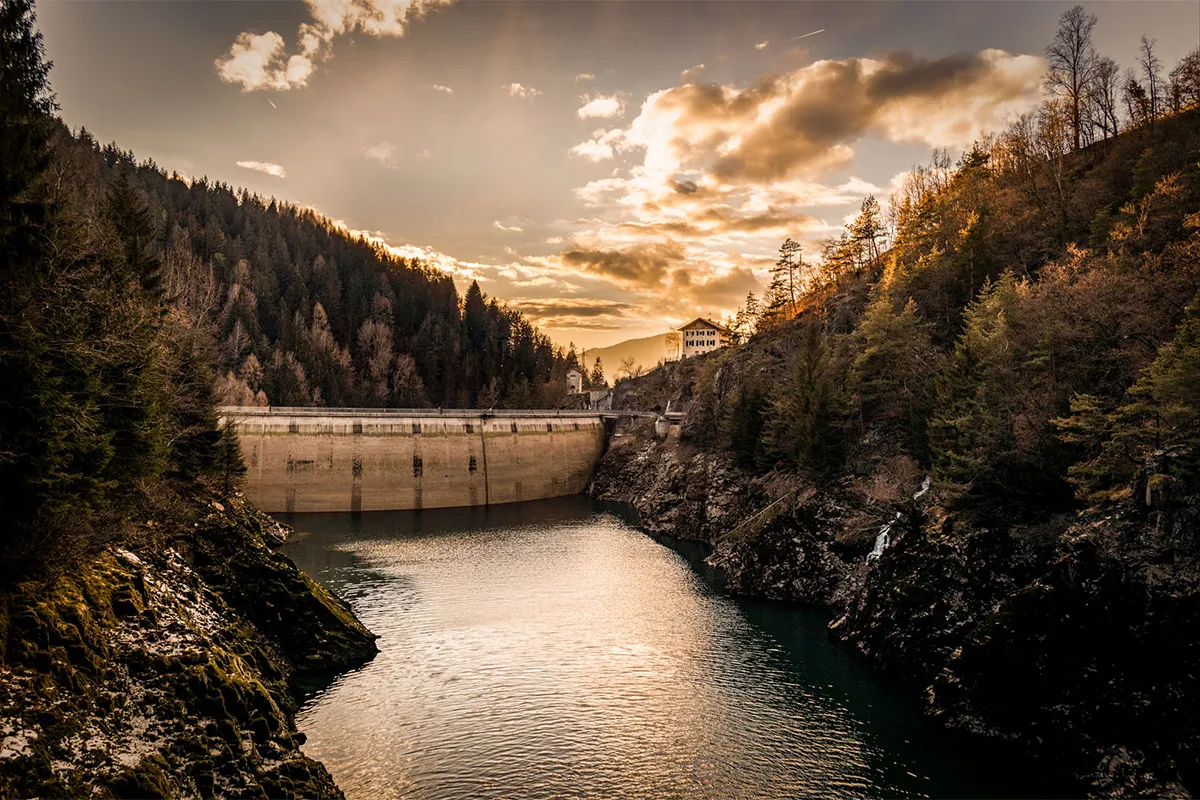
View of the Val d'Auna dam, Soprabolzano, Italy, which supplies the Sant'Antonio power station. The dam stores 400,000 cubic metres of water, which is carried down to the power plant via underground pipelines 1500 metres long.
Heading into the tunnels
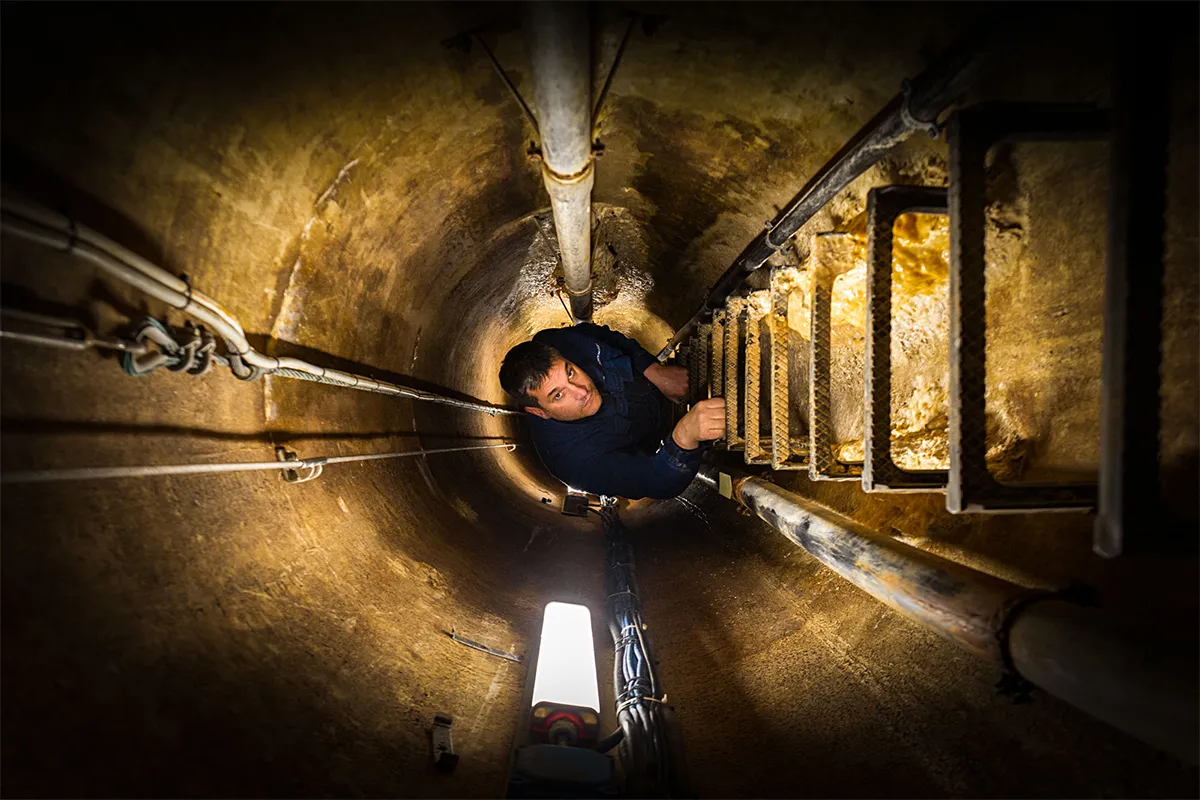
Marco, an electrician, heads down into the tunnel system during his shift in the Sant’Antonio hydroelectric power plant.
The underground tunnel system
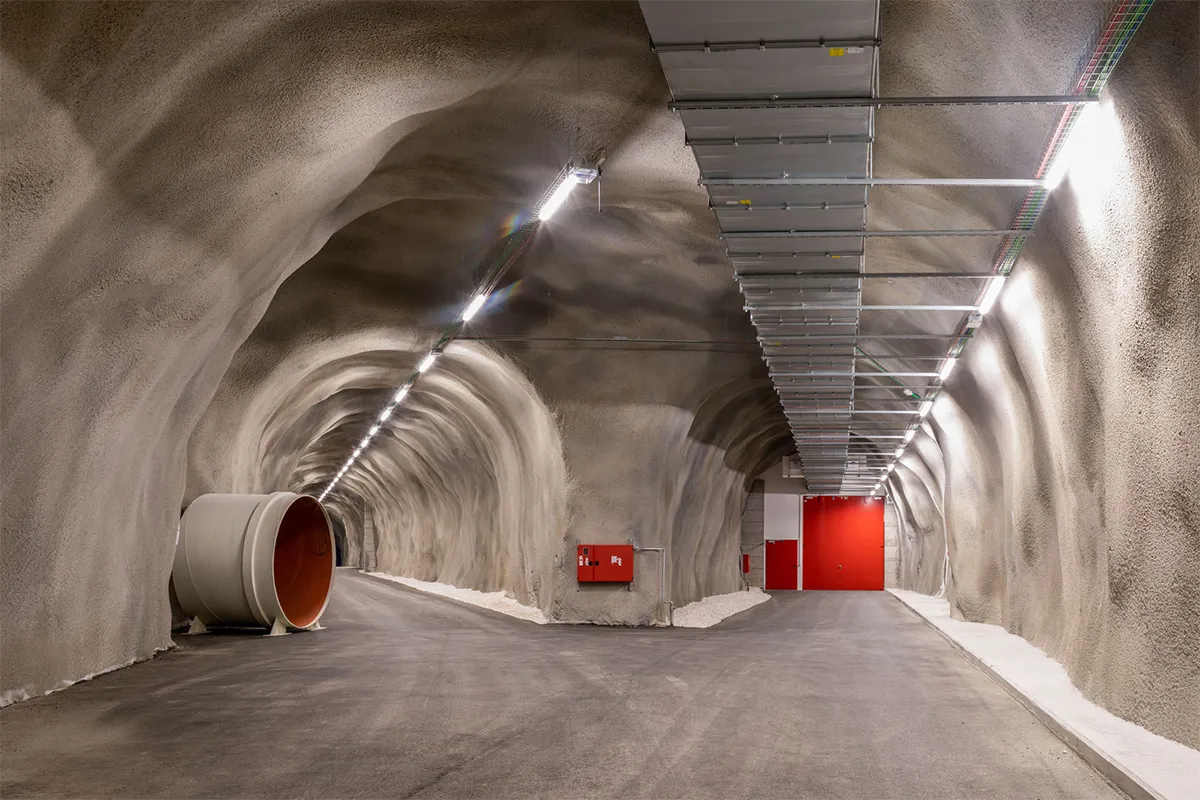
The underground tunnel system, hidden under the Monte Tondo mountain, is approximately 2km long.
The heat exchanger
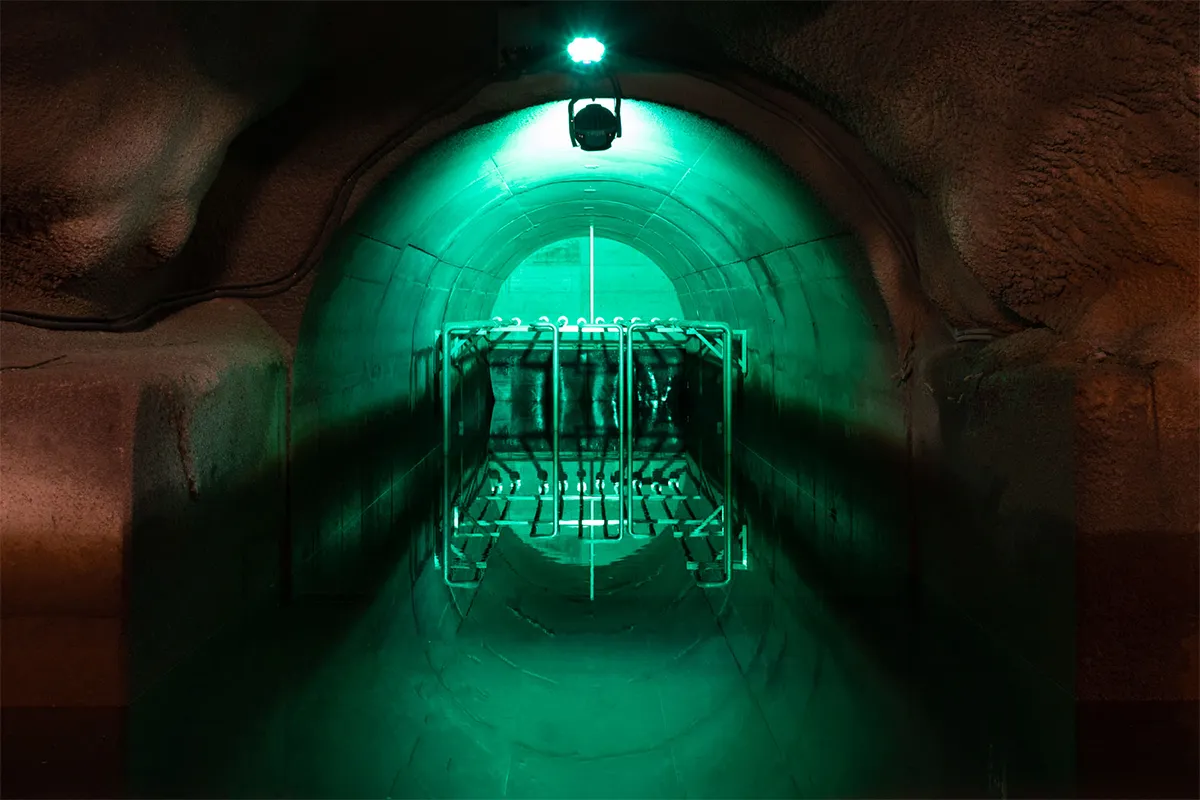
The heat exchanger is immersed in the basin, and helps to cool the power generator before the water can flow back into the Talvera River.
The turbine hall
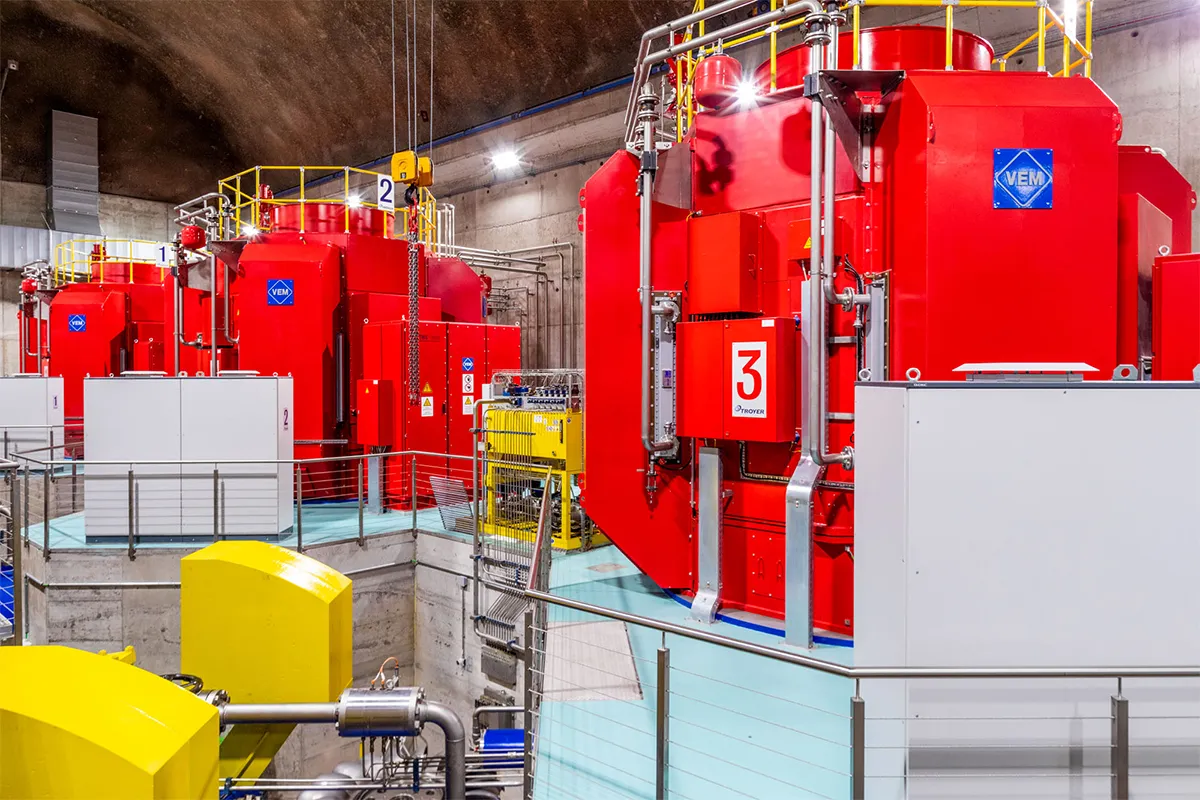
The turbine hall of the underground hydroelectric plant, where water is turned into electricity. The turbines generate 90MW of power, producing a whopping 300GW/h annually.
The demodulation basin
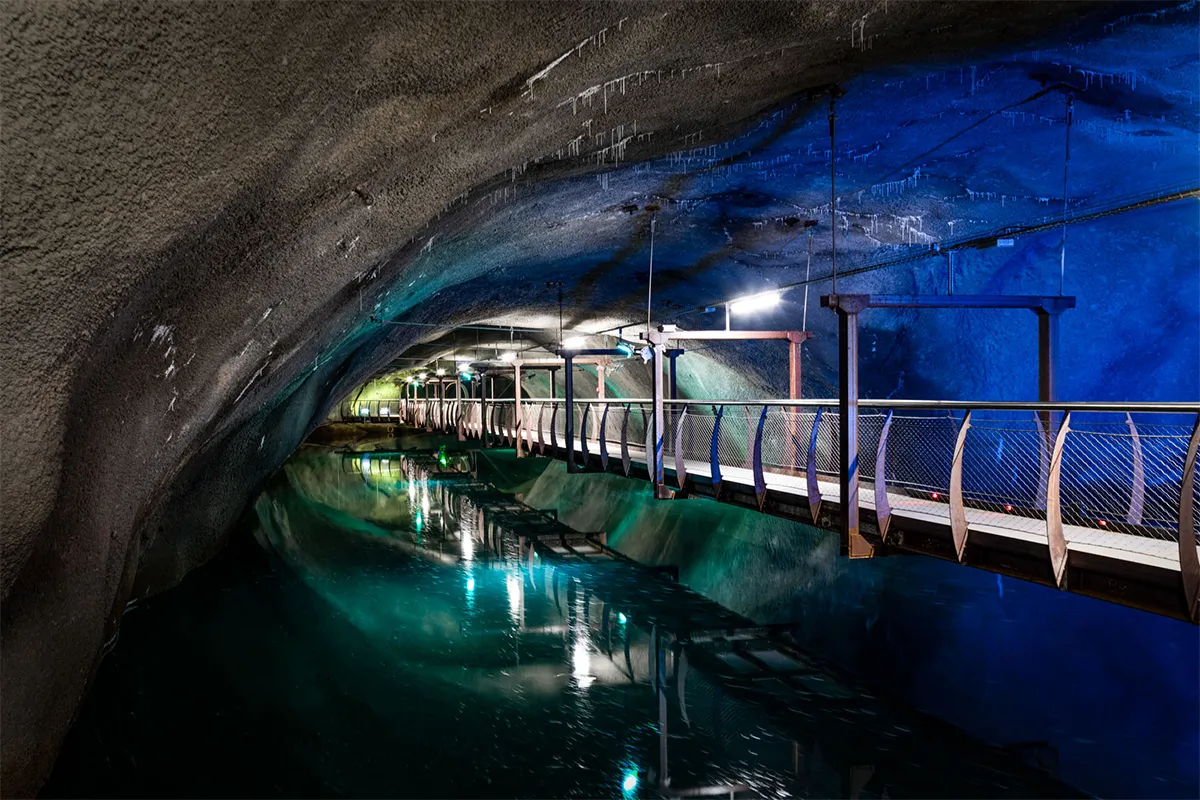
The demodulation basin is divided into interconnected caverns connected by metal platforms.The basin, with its caves illuminated by an energy-efficient lighting system, has considerably reduced the peaks of water flow downstream, making the riverbed much safer for aquatic life and fauna.
Installing water guides
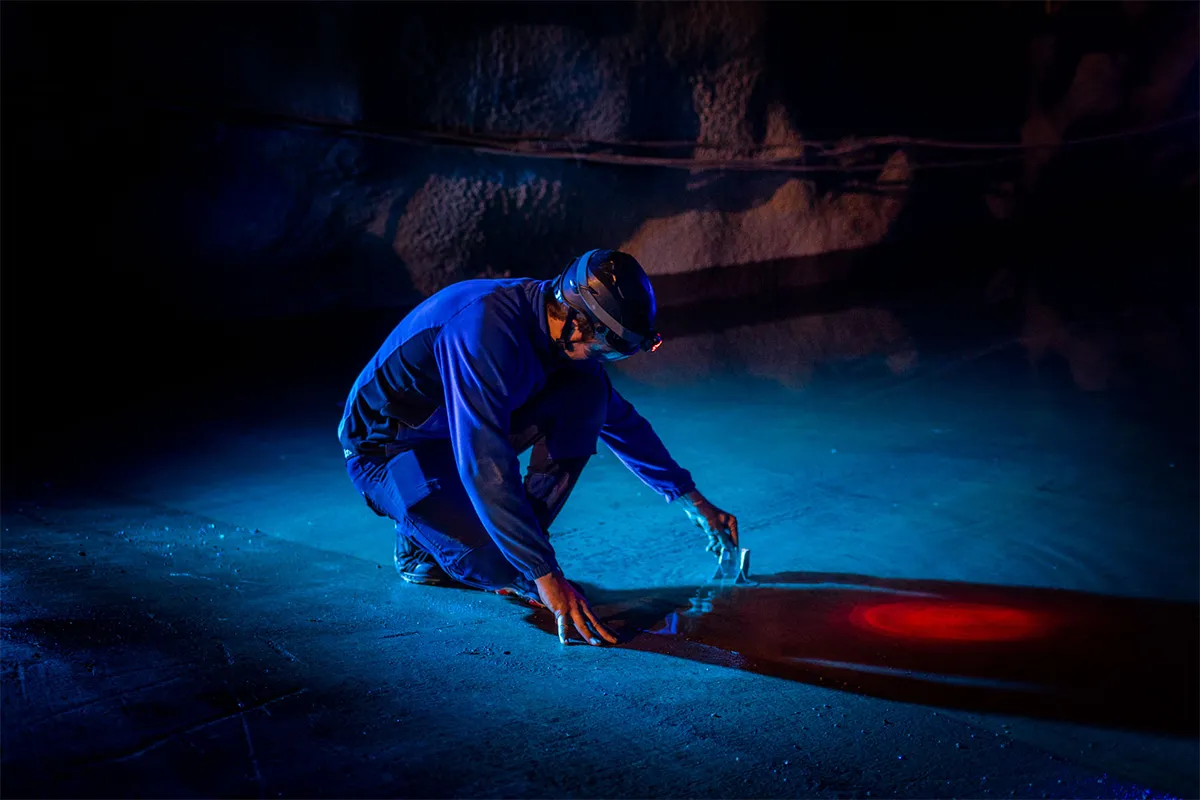
Francesco, an electrician, installs guides for monitoring the water level in the Sant'Antonio plant, in Bolzano, Italy.
More images from BBC Science Focus:
- The hidden net-zero community paving the way for sustainable living
- The energy revolution starts here
- Building a new sun: The biggest science experience continues to take shape
Generating energy
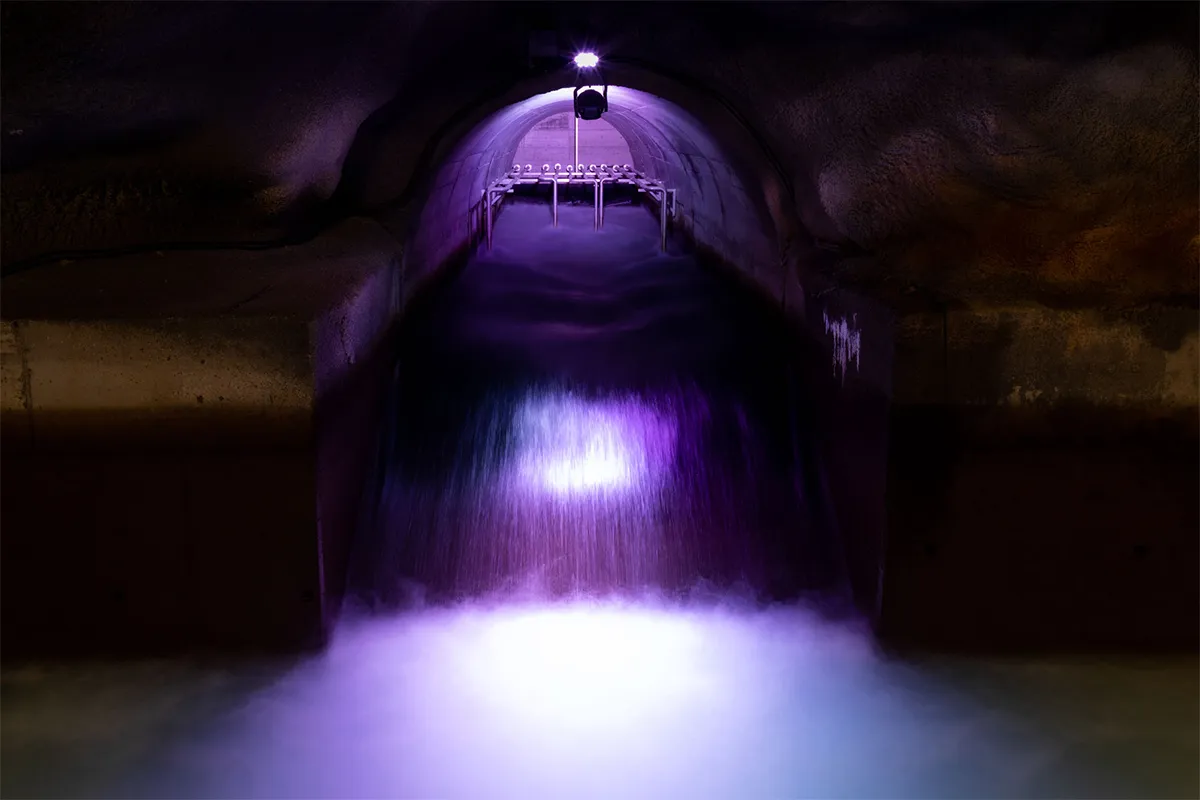
Water flows into the underground demodulation basin of the Sant'Antonio hydroelectric plant. After the modernisation works were completed in 2019, the plant's annual power output has risen to 300GWh, providing power to around 100,000 households.
Underground cavern

The cavernous basin pictured here is a vital part of the hydroelectric plant; it controls the flow of water and manages the release of energy in the turbine system.
The Talvera river
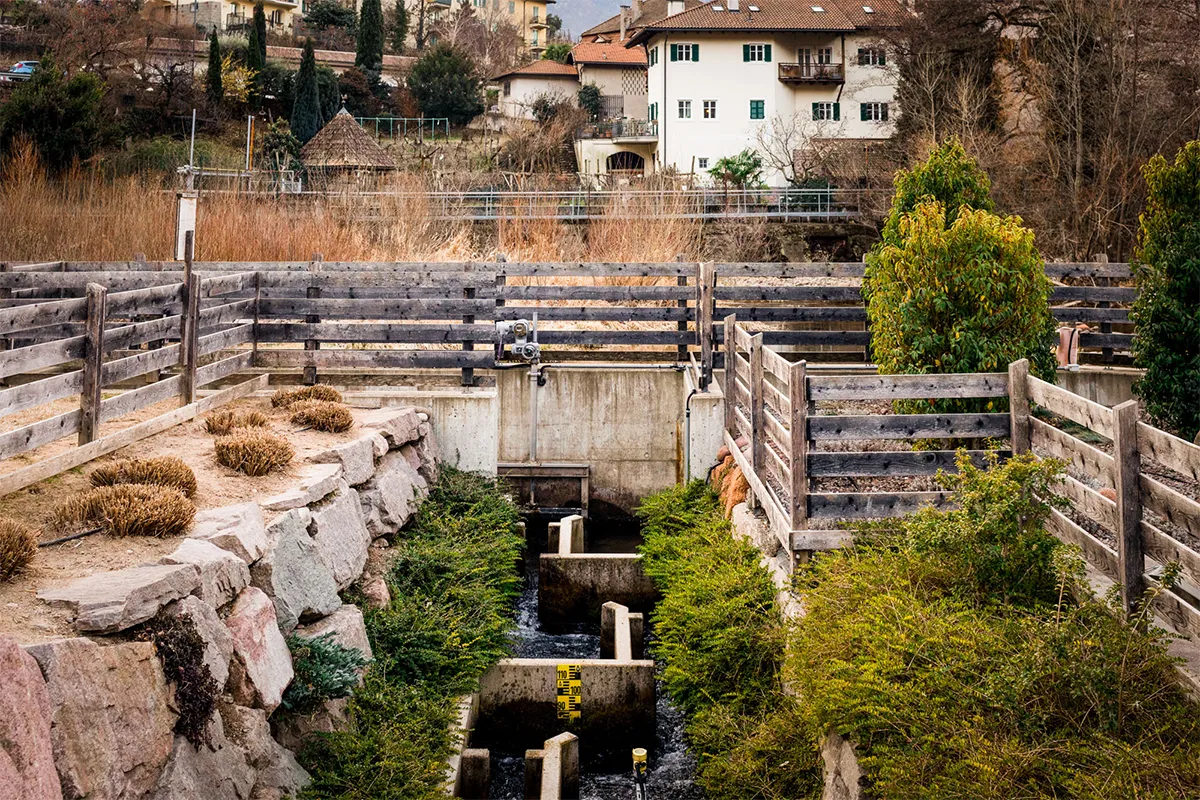
A hydrometric station for monitoring the waters of the Talvera near Bolzano, Italy. The new demodulation basin in the plant has reduced the chances of flooding occurring on the river, making it safer for aquatic fauna and local residents.
Read more:
- What if there were no fossil fuels?
- How does solar energy work?
- What is the difference between wave energy and tide energy?
You can see more of the spectacular Sant’Antonio hydroelectric power plant in the new issue of Science Focus (#390) –subscribe now.